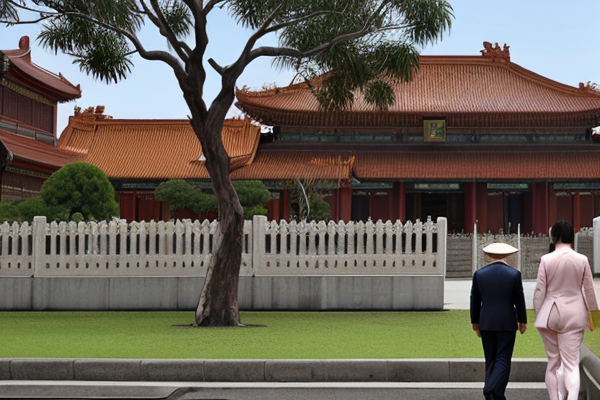 In a significant development, the Chinese government has vowed to address the ongoing issues in its real estate market, coinciding with the visit of Australia's Minister for Trade, Tourism, and Investment, Dan Tehan, also known as Simon Birmingham in his previous role. The Chinese government's commitment comes amid concerns over the potential impact of the market's instability on Australia, where a slowdown in Chinese demand for housing has been felt particularly acutely.
In a significant development, the Chinese government has vowed to address the ongoing issues in its real estate market, coinciding with the visit of Australia's Minister for Trade, Tourism, and Investment, Dan Tehan, also known as Simon Birmingham in his previous role. The Chinese government's commitment comes amid concerns over the potential impact of the market's instability on Australia, where a slowdown in Chinese demand for housing has been felt particularly acutely.
The Chinese government’s pledge to stabilize its property market was made by the National Development and Reform Commission, which has announced a series of measures aimed at cooling down the market and preventing a potential housing bubble. These measures include tightening mortgage lending rules and increasing land supply in an effort to cool down property prices, especially in tier-1 cities like Beijing and Shanghai.
Minister Tehan’s visit to China, his first as Trade Minister, is intended to strengthen Australia’s economic ties with China, the country’s largest trading partner. However, the Australian delegation will also be closely watching the Chinese government’s response to the real estate market instability, as a slowdown in demand for Australian properties from Chinese buyers could have significant ramifications for the Australian economy.
The visit comes at a critical juncture, as the Chinese government grapples with the challenges posed by its overheated property market, while Australia faces the potential fallout from a slowdown in Chinese demand. The meetings between Minister Tehan and his Chinese counterparts are expected to provide insights into both countries’ strategies for navigating these complex economic issues.
In a statement, Minister Tehan emphasized the importance of maintaining a strong and productive relationship with China, and reiterated Australia’s commitment to working together to address common challenges and seize shared opportunities. He also expressed optimism that the visit would yield significant outcomes for both nations, particularly in the areas of trade and investment.
The Chinese government’s efforts to stabilize its property market and Australia’s preparations for potential fallout from a slowdown in Chinese demand for housing are closely intertwined, as both economies are deeply entwined and heavily dependent on each other. As the situation unfolds, it remains to be seen how these two economic giants will navigate these challenging times and maintain their mutually beneficial relationship.